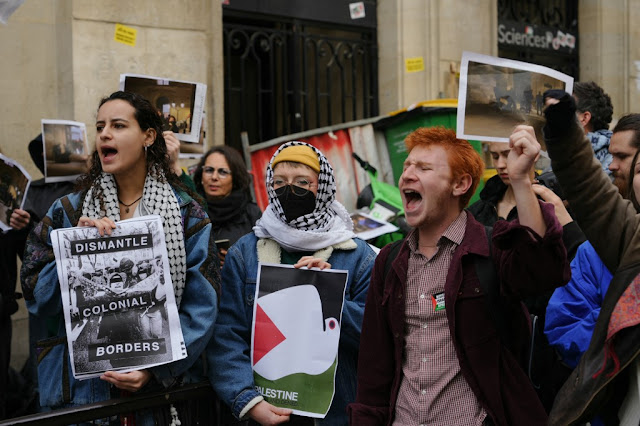London, May 1, 2024 (AFP)
- Britain's ruling Conservative party is expected to suffer heavy losses in crunch local elections this week that are likely to increase pressure on beleaguered Prime Minister Rishi Sunak.
The polls are the last major electoral test before a general election that Sunak's party, in power since 2010, seems destined to lose to the Labour opposition.
Sunak has said he wants to hold the nationwide vote in the second half of the year, but bruising defeats in Thursday's votes could force his hand earlier.
"These elections form a vital examination for the Sunak premiership -- road-testing its claim that the plan is working and the degree to which voters still lend that notion any degree of credibility," political scientist Richard Carr told AFP.
Incumbent governments tend to suffer losses in local contests and the Conservatives are forecast by pollsters to lose about half of the council seats they are defending.
Sunak's immediate political future is said to rest on whether two high-profile Tory regional mayors get re-elected in the West Midlands and Tees Valley areas of central and northeast England.
Wins for the Conservative mayors, Andy Street and Ben Houchen, would boost hopes among Tory MPs that Sunak can turn around their party's fortunes in time for the general election.
But speculation is rife in the UK parliament that a bad showing could lead some restive Conservative lawmakers to try to replace Sunak before the nationwide poll.
"If Andy Street and Ben Houchen both lose, any idea that Sunak can carry on is surely done," said Carr, a politics lecturer at Anglia Ruskin University.
"Whether that means he rolls the dice on a general election or gets toppled remains to be seen."
Factional infighting has plagued the Tories in recent years, serving up five prime ministers since the 2016 Brexit vote, including three in four months from July to October 2022.
A group of restive Conservative MPs have drawn up a "policy blitz" for a potential successor to Sunak in the event of massive losses this week, British media have reported.
- Another one? -
Some observers say it would be madness for the Conservatives to topple another leader when Sunak has provided some stability since succeeding Liz Truss in October 2022.
Others say the party's credibility is already shot so why not try one last desperate throw of the dice to try to stop a predicted Labour landslide.
Some 52 MPs would need to submit letters of no confidence in Sunak to trigger an internal party vote to replace him -- a tall ask.
"I still expect Sunak will lead the Conservatives into the general election," Richard Hayton, a politics professor at Leeds University, told AFP.
"But some MPs may seek to move against him, which will further damage his standing with the general public."
Sunak, 43, was an internal Tory appointment following Truss's disastrous 49 days premiership in which her unfunded tax cuts caused market turmoil and sank the pound.
Despite numerous leadership resets under Sunak, the Tories have continued to trail Labour, led by Keir Starmer, by double digits in most opinion polls.
An Ipsos poll earlier this month put Sunak's satisfaction rating at a joint all-time low of minus 59 percent.
More than 2,500 councillors are standing in England on Thursday, as well as London's Labour mayor Sadiq Khan who is seeking a record third term in office.
Most of the council seats up for re-election were last contested in 2021, when ex-Tory premier Boris Johnson was popular as he rolled out Covid-19 vaccines.







